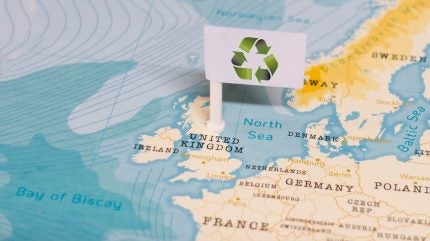
On 6 November, the UK government’s Department for Environment, Food and Rural Affairs (Defra) convened a pivotal roundtable to align businesses on strategies for tackling plastic pollution ahead of the United Nations Intergovernmental Negotiating Committee’s fifth session (INC-5).
Co-chaired by Steve Reed, the Secretary of State for Defra, and the Ellen MacArthur Foundation, the event brought together industry leaders including Tesco, Unilever, and WRAP, who discussed critical components for a global treaty on plastic pollution.
The roundtable’s main focus centred on global rules and funding mechanisms to combat plastic waste.
“Businesses are calling for ambitious targets,” said a Defra spokesperson. “This roundtable underscored the need for substantial commitments from all stakeholders to develop effective, binding regulations.”
The roundtable’s participants also signed a statement advocating for a treaty that would implement strict international guidelines to address the challenges of plastic pollution.
This statement, open for additional signatures until the start of INC-5 on 25 November, aims to encourage private and public sector support for a cohesive approach.
Global business leaders back unified plastic treaty goals
The statement currently has signatures from prominent companies including Danone, Nestlé, and Mars, alongside endorsements from influential organisations like WRAP.
As Harriet Lamb, CEO of WRAP, remarked, “The time for legislation to take over is now. Controlling plastic pollution, banning some items, and ensuring a circular economy in plastics needs global regulation.”
She emphasised the need for inclusive financing mechanisms that empower countries in the global south, which face immediate impacts from escalating plastic pollution.
“Action must focus particularly on finance to support countries in the global south,” Lamb continued. “Only with adequate funding can these nations invest in the infrastructure, skills, and solutions necessary to tackle the crisis effectively.”
As the roundtable concluded, many attendees expressed optimism that INC-5 would establish actionable goals that industries and governments can follow, monitor, and enforce.
International pressure mounts for binding agreement at INC-5
With momentum building towards INC-5 in Busan, South Korea, there is growing international consensus on the need for binding measures.
Notably, ten US states have urged the federal government to champion stronger commitments within the United Nations Plastic Treaty, underscoring the global nature of the issue.
The INC sessions, with the fourth held in April in Ottawa, Canada, aim to develop an international legally binding instrument on plastic pollution.
As businesses and governments worldwide call for decisive action, INC-5 is expected to set a historic precedent in regulating plastic pollution.



